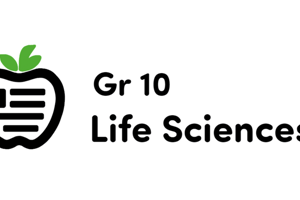Podcast
Questions and Answers
All living things are made of ______.
All living things are made of ______.
cells
Which of these is a type of scientific reasoning?
Which of these is a type of scientific reasoning?
- Inductive reasoning
- Deductive reasoning
- Both A and B (correct)
- None of the above
What is discovery science?
What is discovery science?
Discovery science uses inductive reasoning and describes natural processes.
Hypothesis-based science utilizes deductive reasoning.
Hypothesis-based science utilizes deductive reasoning.
What must a hypothesis be in hypothesis-based science?
What must a hypothesis be in hypothesis-based science?
In controlled experiments, the ______ variable remains constant.
In controlled experiments, the ______ variable remains constant.
What is the cell theory?
What is the cell theory?
Flashcards are hidden until you start studying
Study Notes
Types of Science
- Sciences can be categorized into various branches: Astronomy, Chemistry, Physics, and Biology.
- Natural Science encompasses the study of natural phenomena through observation and experimentation.
Pure vs. Applied Science
- Pure Science aims to expand knowledge without immediate practical applications.
- Applied Science utilizes knowledge gained from pure science to solve real-world problems, often focusing on product or service development.
Scientific Reasoning
- Discovery Science employs inductive reasoning, which involves deriving general principles from specific observations.
- Hypothesis-based Science uses deductive reasoning, starting with a broad understanding to formulate specific, testable hypotheses.
Inductive vs. Deductive Reasoning
- Inductive reasoning generates generalizations based on observations of natural processes.
- Deductive reasoning begins with a known principle to make predictions about specific scenarios.
Experimental Design
- Controlled experiments maintain constant conditions across all parameters to isolate the effect of the independent variable.
- An experimental group tests the independent variable, while a control group serves as a baseline comparison.
Hypothesis and Theories
- A hypothesis must be testable and falsifiable, providing a basis for scientific inquiry.
- Scientific theories are well-supported frameworks that withstand repeated testing and are backed by significant evidence.
Notable Theories in Biology
- The Cell Theory states that all living organisms are composed of one or more cells, which are the basic units of life.
- Other significant concepts include Chromosome Theory, underlying genetic inheritance, and the theory of evolution.
Evidence and Support for Theories
- Theories are validated through a robust body of evidence gathered from multiple experiments and observations, reinforcing their credibility within the scientific community.
Studying That Suits You
Use AI to generate personalized quizzes and flashcards to suit your learning preferences.




